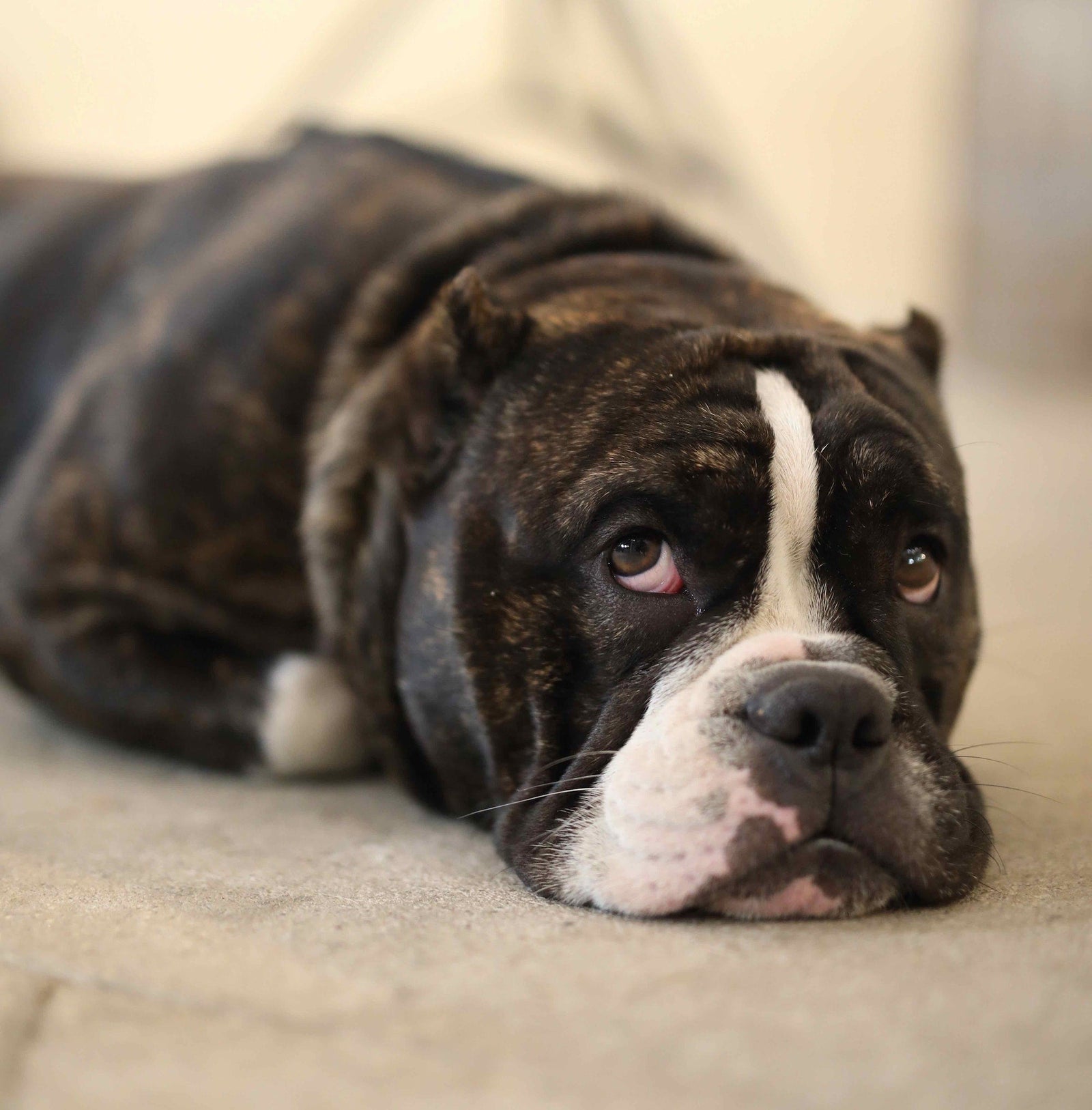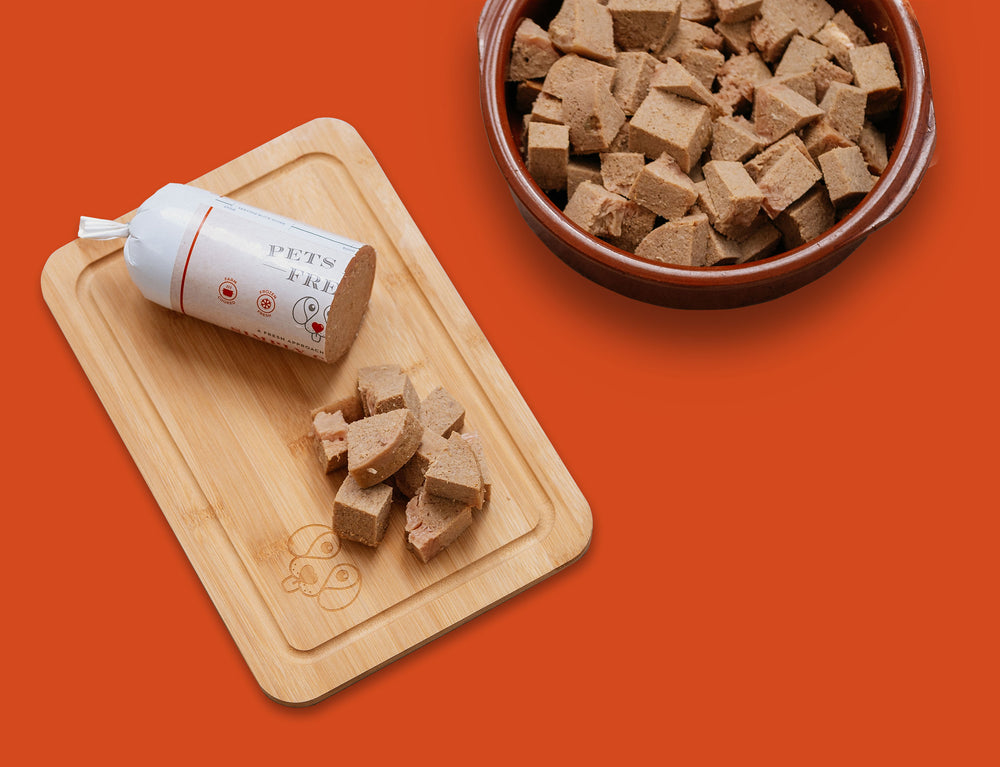Gastroenteritis is quite a common condition in dogs. If you notice your pooch has been suffering from diarrhoea, vomiting, or both, then it's fairly likely they have this illness. It can be difficult to manage, and it's obviously disconcerting to see your pup suffering, but it is possible that mild forms of the condition will go away by themselves.
The more severe forms of gastroenteritis require treatment from your vet, and if you see blood in your pup’s stool, this could indicate they have hemorrhagic gastroenteritis (HGE) or Acute hemorrhagic diarrhea syndrome (AHDS). If this is the case they should be checked over immediately.
What is gastroenteritis in dogs?
Gastroenteritis is a condition that affects dogs in much the same way as it does humans. It causes an inflammation of their stomach and intestines (otherwise known as their gastrointestinal tract).
You might first notice symptoms when your dog starts dry heaving or gagging after eating or drinking. This can then lead to diarrhoea and vomiting. In some cases it can be a very serious condition, and if you notice your pup showing any symptoms, you should contact your vet as soon as possible.
While they are suffering from gastroenteritis, they may also appear lethargic and might not want to eat as much as usual. Ensuring your dog is hydrated should be the first priority; dehydration can often occur after vomiting and diarrhoea.
What causes gastroenteritis in dogs?
There are many causes of gastroenteritis in dogs, which can include:
- Eating spoilt food
- Ingesting certain toxins
- Viruses and bacteria
- Intestinal parasites
- Certain gastrointestinal cancers
- Underlying health conditions
- Food allergies
Symptoms of gastroenteritis in dogs
There are many symptoms of gastroenteritis. The main ones you’ll notice in your pooch are vomiting and diarrhea, but a loss of appetite can also occur and you will find your dog may become more lethargic than usual.
If your dog is experiencing this condition, you will notice them struggling to defecate, and they may even begin to do so in the house. Their stool will then begin to get wetter and wetter. This can make them very tender around the abdomen, so they may find being touched or picked up uncomfortable. A low grade fever is also quite common. If your dog is showing these symptoms separately, or all together, they should be checked over by a vet immediately.
Treatments for dog gastroenteritis
If your dog is suffering from gastroenteritis, rehydration is the principal treatment. Dogs can survive a few days without food, but dehydration can become fatal very quickly. The specific treatment they receive will depend on how dehydrated they are - in extreme cases, an intravenous drip is required, while less severe cases might only require an electrolyte supplement to be added to their water.
Antidiarrhoeal drugs may be prescribed to help balance their intestinal fluids, and certain anti-vomiting drugs may also be given to help stop the major symptoms. If it is hemorrhagic gastroenteritis, then your vet may be forced to carry out blood tests, or even x-rays, to determine if your pooch is suffering from any foreign bodies or diseases. But in most cases, your vet may simply recommend you withhold feeding your dog for 24 hours to allow their stomach to settle.
How long does gastroenteritis last in dogs?
Generally, gastroenteritis in dogs will last a few days and the symptoms will improve dramatically once they have been rehydrated. If you notice the symptoms are still there after 48 hours, then you should contact your vet.
It is a very common condition, so your vet is likely to be able to identify it quickly. Once identified, there are many treatments to get your dog back to their usual self, but it is essential you keep an eye on them during this time.
How can you prevent your dog from getting gastroenteritis?
Since gastroenteritis is such a common condition in dogs, there's a high chance your pooch will suffer from it at some point in their lives. Luckily, there are plenty of preventative measures you can put in place to lower their chance of getting it.
- Prevent scavenging - whenever you leave the house with your pup, they’re bound to eat something that will upset their stomach. If you are unable to prevent this then you could try muzzle training. You could also consider keeping your dog on their lead, which will ensure they don’t run off and find something nasty to snack on.
- Slowly introduce new foods - one of the main causes of an stomach upset in dogs is when their food is changed too suddenly. Transition food slowly over the course of a few weeks to prevent it.
- Keep human food out of reach - certain foods that can be digested by humans are actually poisonous to dogs. Chocolate, garlic, and onions are just some examples of food that should be kept away from your pooch.
- Keep up to date with worming treatment - there are certain worms that can cause issues in your dog's gastrointestinal tract. By worming every three months, you will ensure that your pooch remains parasite free.
What to feed a dog with gastroenteritis
Food high in fibre and low in fat will be beneficial to your dog when they are suffering from gastroenteritis. But any food you know will not upset your dog's stomach, and that can be fed regularly, should be given to them.
Transitioning over to a fresh food diet that is high in fibre and low in fat is a great way to prevent the condition. Pets Love Fresh offers a 100% natural dog food that is devoid of cheap filler, and packed with nutrients to keep your pup healthy. Try out our taster pack and give your dog everything they need for a balanced diet.


